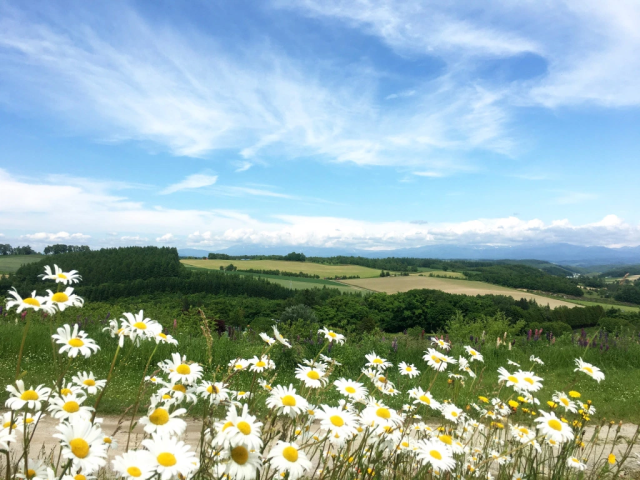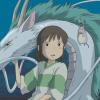
P.K. Sanjun takes a look at some of the common criteria used to define what makes a person “Japanese,” and whether they’ll still be used in the future.
On September 9, Osaka-born Naomi Osaka won the women’s singles crown at the US Open, becoming the first Japanese citizen to win one of the sport’s four top-level competitions. She’s since been featured regularly on the news in Japan, with sportscasters gushing over her performance and rise to worldwide fame.
However, because she’s of mixed heritage and left the country at a young age, some online commenters have been questioning just how “Japanese” Osaka is. Here with his thoughts on the matter is our Japanese-language columnist P.K. Sanjun, who is of Korean heritage but born and raised in Japan.
Naomi Osaka recently became the first Japanese female professional tennis player to win a Grand Slam singles title. While she’s received a tremendous amount of praise for this in Japan, there have also been some unsettling sentiments shown online.
To put it bluntly, some people have been asking the question “Is it OK to say Naomi Osaka is a Japanese person?” I myself am a person of Korean heritage living in Japan, so I’d like to take a moment to talk about what I feel the definition of “a Japanese person” is.
A the very start, I’d like to state that what I’m going to say is strictly my personal opinion. I’m not speaking as a representative of all people of Korean heritage living in Japan, not do my thoughts constitute those of this website. However, I am basing my statements off of my experiences, in which despite being born in Japan, I grew up being seen not as a Japanese person, but as a foreigner.
▼ P.K.
OK, now that we’ve got that out of the way, let’s talk about Naomi Osaka. Her father is a Haitian-American, her mother is Japanese, and she has dual citizenship (American and Japanese). She was born in the city of Osaka, then moved to the U.S. at the age of 4. She speaks English fluently, but is not as proficient in Japanese. In summary:
● She has dual citizenship
● She is of mixed heritage
● She was born in Japan and primarily grew up overseas
● Her proficiency with the Japanese language isn’t so high
That brings us back to the issue of people on the Internet asking “Is it OK to say Naomi Osaka is a Japanese person?”
▼ Naomi Osaka
https://www.instagram.com/p/BnM4EbQFQE9/?utm_source=ig_embed
To me, there’s a difference in nuance when people use the Japanese words Nihonjin (literally “Japanese person”) and Nihon kokuseki (“Japanese citizen”). As long as your citizenship is with Japan, that makes you a Japanese citizen, but not everyone in Japan would say that being a Japanese citizen makes you a Japanese person.
I think Japanese people are conservatively minded, for better or for worse. The surrounding seas form a natural barrier, and for several thousand years, with the exception of the Ainu and Ryukyu people of Hokkaido and Okinawa, the country was made up of only the Yamato ethnic group, which became the standard image of “Japanese people.”
By comparison, the continuous European landmass meant that from long ago, people were conscious of the presence of other ethnic groups. That’s also true of countries in the Middle East and elsewhere in Asia. But in Japan, for thousands of years, many people lived with a sense akin to “There are only Japanese people in this world.” Japan’s isolated geography and ethnic uniformity influenced the development of its specific culture, and led to a sense that the definition of a Japanese person is being of strictly Japanese descent, born in Japan, raised in Japan, and able to speak Japanese, which is something I won’t say is either good or bad.
However, times have changed. In the last few decades, society has become increasingly globalized, and far-off lands that used to require a death-defying voyage in a wooden boat to set foot on now feel like much closer neighbors. Japanese people finally understand that the world isn’t made up only of Japanese people, but that they, instead, are one of the many ethnic groups that make up the world.
However, in a historical sense, not so much time has passed since that realization was made. It’s only been about 150 years since the Meiji Restoration ended Japan’s feudal era. It’s only been that long since people in Japan wore their hair in topknots and had to bow down at the side of the road when a samurai lord was passing by. People may be able to comprehend new thoughts quickly, but it takes more time for their base feelings to change.
I think that in 100 years’ time, or maybe 200, people will no longer be asking questions like they’ve been doing about Naomi Osaka. And I think the change will happen suddenly. Once again, for better or for worse Japanese people tend to go with the flow, and once the general feeling is that it’s not a question that needs to be asked, pretty much all of Japanese society will stop doing so.
So if P.K. thinks that the old criteria which are often used to determine a person’s “Japanese-ness” will eventually fade away, what does he think will replace them? “A love for Japan,” he replies. “And I don’t think that just goes for Japan, but for other countries as well,” as globalization allows people to increasingly live and work in parts of the world other than the one they were born or grew up in. “One day, it won’t matter what your citizenship is or what language you speak. If you love Japan and think of yourself as a Japanese person, that’ll be enough.”
Photos ©SoraNews24



 Naomi Osaka stirs up debate about what it means to be Japanese following U.S. Open victory
Naomi Osaka stirs up debate about what it means to be Japanese following U.S. Open victory Naomi Osaka chooses Japanese citizenship over U.S., hopes to represent Japan at Tokyo Olympics
Naomi Osaka chooses Japanese citizenship over U.S., hopes to represent Japan at Tokyo Olympics Naomi Osaka shuts down reporter who asked her to speak in Japanese following Australian Open win
Naomi Osaka shuts down reporter who asked her to speak in Japanese following Australian Open win Japanese reporters’ lame questions to tennis star Naomi Osaka embarrass netizens
Japanese reporters’ lame questions to tennis star Naomi Osaka embarrass netizens Naomi Osaka is first-ever Japanese athlete to be named AP Female Athlete of the Year
Naomi Osaka is first-ever Japanese athlete to be named AP Female Athlete of the Year Red light district sushi restaurant in Tokyo shows us just how wrong we were about it
Red light district sushi restaurant in Tokyo shows us just how wrong we were about it Historical figures get manga makeovers from artists of Spy x Family, My Hero Academia and more
Historical figures get manga makeovers from artists of Spy x Family, My Hero Academia and more Sandwiches fit for a sumo served up in Osaka【Taste Test】
Sandwiches fit for a sumo served up in Osaka【Taste Test】 Tokyo Tsukiji fish market site to be redeveloped with 50,000-seat stadium, hotel, shopping center
Tokyo Tsukiji fish market site to be redeveloped with 50,000-seat stadium, hotel, shopping center Japan’s massive matcha parfait weighs 6 kilos, contains hidden surprises for anyone who eats it
Japan’s massive matcha parfait weighs 6 kilos, contains hidden surprises for anyone who eats it Haku is…Chihiro’s dead brother? Studio Ghibli fans blown away by Spirited Away theory
Haku is…Chihiro’s dead brother? Studio Ghibli fans blown away by Spirited Away theory Pokémon Sleep camping suite and guestrooms coming to Tokyo Hyatt along with giant Snorlax burgers
Pokémon Sleep camping suite and guestrooms coming to Tokyo Hyatt along with giant Snorlax burgers McDonald’s new Happy Meals offer up cute and practical Sanrio lifestyle goods
McDonald’s new Happy Meals offer up cute and practical Sanrio lifestyle goods Japanese ramen restaurants under pressure from new yen banknotes
Japanese ramen restaurants under pressure from new yen banknotes Anime girl English teacher Ellen-sensei becomes VTuber/VVTUber and NFT
Anime girl English teacher Ellen-sensei becomes VTuber/VVTUber and NFT All-you-can-drink Starbucks and amazing views part of Tokyo’s new 170 meter-high sky lounge
All-you-can-drink Starbucks and amazing views part of Tokyo’s new 170 meter-high sky lounge More foreign tourists than ever before in history visited Japan last month
More foreign tourists than ever before in history visited Japan last month French Fries Bread in Tokyo’s Shibuya becomes a hit on social media
French Fries Bread in Tokyo’s Shibuya becomes a hit on social media Studio Ghibli releases new action figures featuring Nausicaä of the Valley of the Wind characters
Studio Ghibli releases new action figures featuring Nausicaä of the Valley of the Wind characters New private rooms on Tokaido Shinkansen change the way we travel from Tokyo to Kyoto
New private rooms on Tokaido Shinkansen change the way we travel from Tokyo to Kyoto Starbucks reopens at Shibuya Scramble Crossing with new look and design concept
Starbucks reopens at Shibuya Scramble Crossing with new look and design concept Studio Ghibli glasses cases let anime characters keep an eye on your spectacles
Studio Ghibli glasses cases let anime characters keep an eye on your spectacles Beautiful Ghibli sealing wax kits let you create accessories and elegant letter decorations【Pics】
Beautiful Ghibli sealing wax kits let you create accessories and elegant letter decorations【Pics】 Studio Ghibli releases Kiki’s Delivery Service chocolate cake pouches in Japan
Studio Ghibli releases Kiki’s Delivery Service chocolate cake pouches in Japan New definition of “Japanese whiskey” goes into effect to prevent fakes from fooling overseas buyers
New definition of “Japanese whiskey” goes into effect to prevent fakes from fooling overseas buyers Our Japanese reporter visits Costco in the U.S., finds super American and very Japanese things
Our Japanese reporter visits Costco in the U.S., finds super American and very Japanese things Studio Ghibli unveils Mother’s Day gift set that captures the love in My Neighbour Totoro
Studio Ghibli unveils Mother’s Day gift set that captures the love in My Neighbour Totoro New Japanese KitKat flavour stars Sanrio characters, including Hello Kitty
New Japanese KitKat flavour stars Sanrio characters, including Hello Kitty New Pokémon cakes let you eat your way through Pikachu and all the Eevee evolutions
New Pokémon cakes let you eat your way through Pikachu and all the Eevee evolutions Disney princesses get official manga makeovers for Manga Princess Cafe opening in Tokyo
Disney princesses get official manga makeovers for Manga Princess Cafe opening in Tokyo Sales of Japan’s most convenient train ticket/shopping payment cards suspended indefinitely
Sales of Japan’s most convenient train ticket/shopping payment cards suspended indefinitely Sold-out Studio Ghibli desktop humidifiers are back so Totoro can help you through the dry season
Sold-out Studio Ghibli desktop humidifiers are back so Totoro can help you through the dry season Japanese government to make first change to romanization spelling rules since the 1950s
Japanese government to make first change to romanization spelling rules since the 1950s Ghibli founders Toshio Suzuki and Hayao Miyazaki contribute to Japanese whisky Totoro label design
Ghibli founders Toshio Suzuki and Hayao Miyazaki contribute to Japanese whisky Totoro label design Doraemon found buried at sea as scene from 1993 anime becomes real life【Photos】
Doraemon found buried at sea as scene from 1993 anime becomes real life【Photos】 Tokyo’s most famous Starbucks is closed
Tokyo’s most famous Starbucks is closed One Piece characters’ nationalities revealed, but fans have mixed opinions
One Piece characters’ nationalities revealed, but fans have mixed opinions We asked a Uniqlo employee what four things we should buy and their suggestions didn’t disappoint
We asked a Uniqlo employee what four things we should buy and their suggestions didn’t disappoint Princesses, fruits, and blacksmiths: Study reveals the 30 most unusual family names in Japan
Princesses, fruits, and blacksmiths: Study reveals the 30 most unusual family names in Japan Cup Noodle in hot water once again for unflattering Grand Slam support ad
Cup Noodle in hot water once again for unflattering Grand Slam support ad Instagram queen Naomi Watanabe poses for avant-garde photoshoot, slays fans
Instagram queen Naomi Watanabe poses for avant-garde photoshoot, slays fans How much has changed in Japan one week after Naomi Osaka’s victory in the 2018 U.S. Open?
How much has changed in Japan one week after Naomi Osaka’s victory in the 2018 U.S. Open? Naomi Osaka’s dream of having her own Barbie doll comes true
Naomi Osaka’s dream of having her own Barbie doll comes true Japanese comedian Naomi Watanabe has a livestream YouTube channel, and fans are living for it
Japanese comedian Naomi Watanabe has a livestream YouTube channel, and fans are living for it Naomi Watanabe sports Adidas stripes in her hair to celebrate becoming brand ambassador
Naomi Watanabe sports Adidas stripes in her hair to celebrate becoming brand ambassador Naomi Watanabe responds to “Olympig” remark from Tokyo Olympics ceremony chief
Naomi Watanabe responds to “Olympig” remark from Tokyo Olympics ceremony chief Japanese girls are not just skinny any more!? Chubby girls are in!
Japanese girls are not just skinny any more!? Chubby girls are in! Japanese Disney fanatic impresses Will Smith with just one interview question
Japanese Disney fanatic impresses Will Smith with just one interview question “Japanese Beyoncé” Naomi Watanabe is now a model for Beyoncé’s Ivy Park collection
“Japanese Beyoncé” Naomi Watanabe is now a model for Beyoncé’s Ivy Park collection Eurovision winner criticized for Japanese cultural appropriation by everyone except the Japanese
Eurovision winner criticized for Japanese cultural appropriation by everyone except the Japanese Nurse cosplay: Would-be Hiroshima City Councilwoman’s innovative campaign tactic
Nurse cosplay: Would-be Hiroshima City Councilwoman’s innovative campaign tactic Foreign residents of Japan prohibited from participating in Yu-Gi-Oh Japan Championship
Foreign residents of Japan prohibited from participating in Yu-Gi-Oh Japan Championship
Leave a Reply